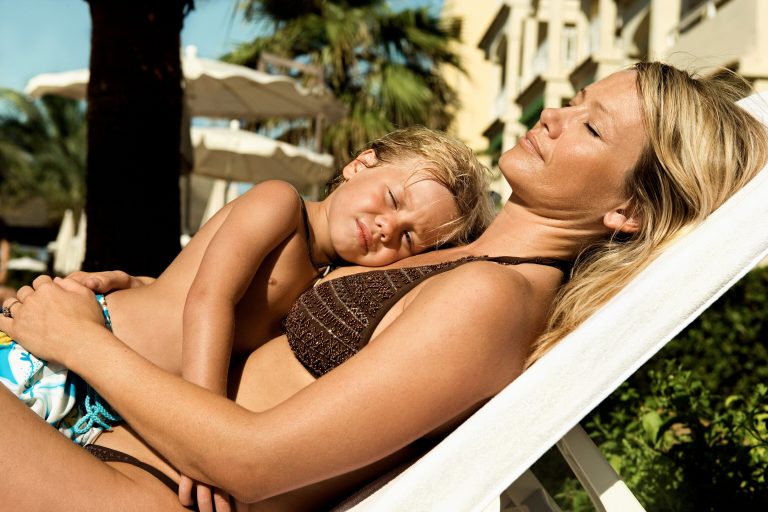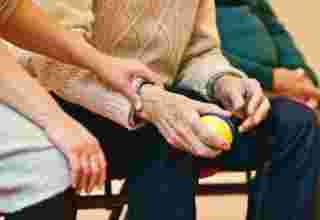
NEWS COPY
Half of British parents spend less than ONE HOUR of quality time a day with their children – according to research.
The Thomas Cook study of 1,500 working parents of children up to six years old found eight in 10 are aware they don’t spend enough time with their children during the average working week.
Among the activities parents are unable to find precious hours for are playtime, exploring new places and reading.
Even sitting together to eat at the same time is a struggle for 43 per cent of families, while a quarter lack the minutes needed to even TALK about what has happened that day.
During the average working week parents will only read with their children for a total of 32 minutes, and play with them for just 43 minutes.
Only 36 minutes are spent sitting at the dining table together, while meaningful conversations are crammed into just 32 minutes a week.
Perhaps unsurprisingly, for half of those polled holidays are a top spending priority for 2018, as they are seen as the answer to restoring balance in family life.
Dr Sam Wass, family psychology from Channel 4’s The Secret Life of 4 and 5 Year Olds, said: “This research from Thomas Cook highlights a growing modern trend – that, increasingly, families don’t get to spend enough ‘together time’.
“Parents often have to work hard and, of the time we do spend together, parents and children spend much of it in their own private worlds, staring at screens. But in fact, there’s a huge amount of research suggesting that it’s the time spent together – talking, and doing shared activities as a family – that is most beneficial both for children and their parents.
“Many of the conversations that we do have with children are focused on giving them orders, and telling them what to do – things like chores and homework.
“This is important, of course, but it’s also important to engage in shared family activities where your child takes the lead. This happens much more often on holiday. It’s for this reason, I think, that many peoples’ warmest and most cherished memories, later in life, are of holidays they went on as children.”
When asked why quality time is so lacking, two thirds of parents cite long working hours, and 55 per cent admit to being side-tracked by chores.
Cooking the dinner, simply having to get more mundane tasks such as homework done, and ferrying the kids to clubs and sports are also reasons why families don’t spend time together in a normal week.
However, the study found parents will spend five times as long reading with their kids on holiday (two hours and 45 minutes), and 10 times longer playing with them (six hours and 50 minutes).
Families will sit together for a proper meal nine times longer on holiday than at home, and perhaps most importantly, conversations will cover four hours a week instead of just half an hour.
Other activities which allow parents to reconnect with their children on holiday are exploring new places, child-led play, teaching new skills and watching them make new friends.
Chris Mottershead, managing director, Thomas Cook UK said: “Most of us have a precious memory of our childhood family holidays. We know from decades of experience that the benefits of time to relax and having fun together as a family go much deeper than a sun tan.
“We’ve been talking to parents and our customers to find simple new ways we can help them spend more quality time together and personalise their holiday to best suit their family’s needs. In 2018, we’ll be trialling new initiatives at our Sunwing Fanabe resort in Tenerife developed with the help of Dr. Sam Wass. These include book boxes in communal areas so families can read more together and specially designed table cloths in our restaurants to encourage family fun and conversations at meal times.”
jQuery(document).ready(function($) {
// We only want these styles applied when javascript is enabled
$(‘.gal_content’).css(‘display’, ‘block’);
// Initialize Advanced Galleriffic Gallery
var gallery = $(‘#thumbs_24406_1’).galleriffic({
delay: 3500,
numThumbs: 12,
preloadAhead: 12,
enableTopPager: false,
enableBottomPager: false,
imageContainerSel: ‘#slideshow_24406_1’,
controlsContainerSel: ‘#controls_24406_1’,
captionContainerSel: ‘#caption_24406_1’,
loadingContainerSel: ‘#loading_24406_1’,
renderSSControls: true,
renderNavControls: false,
playLinkText: ‘Play Slideshow’,
pauseLinkText: ‘Pause Slideshow’,
enableHistory: 0,
autoStart: 0,
enableKeyboardNavigation: true,
syncTransitions: false,
defaultTransitionDuration: 300,
onTransitionOut: function(slide, caption, isSync, callback) {
slide.fadeTo(this.getDefaultTransitionDuration(isSync), 0.0, callback);
caption.fadeTo(this.getDefaultTransitionDuration(isSync), 0.0);
},
onTransitionIn: function(slide, caption, isSync) {
var duration = this.getDefaultTransitionDuration(isSync);
slide.fadeTo(duration, 1.0);
// Position the caption at the bottom of the image and set its opacity
var slideImage = slide.find(‘img’);
caption.fadeTo(duration, 1.0);
},
onPageTransitionOut: function(callback) {
//this.hide();
setTimeout(callback, 100); // wait a bit
},
onPageTransitionIn: function() {
var prevPageLink = this.find(‘a.prev’).css({‘opacity’: ‘0.3’ , ‘display’ : ‘inline-block’, ‘cursor’ : ‘default’});
var nextPageLink = this.find(‘a.next’).css({‘opacity’: ‘0.3’ , ‘display’ : ‘inline-block’, ‘cursor’ : ‘default’});
// Show appropriate next / prev page links
if (this.displayedPage > 0)
prevPageLink.css({‘opacity’ : ‘1’ , ‘display’ : ‘inline-block’, ‘cursor’ : ‘pointer’});
var lastPage = this.getNumPages() – 1;
if (this.displayedPage < lastPage)
nextPageLink.css({'opacity' : '1' , 'display' : 'inline-block', 'cursor' : 'pointer'});
this.fadeTo('fast', 1.0);
}
});
/**************** Event handlers for custom next / prev page links **********************/
gallery.find('a.prev').click(function(e) {
gallery.previousPage();
e.preventDefault();
});
gallery.find('a.next').click(function(e) {
gallery.nextPage();
e.preventDefault();
});
});
ENDS

























